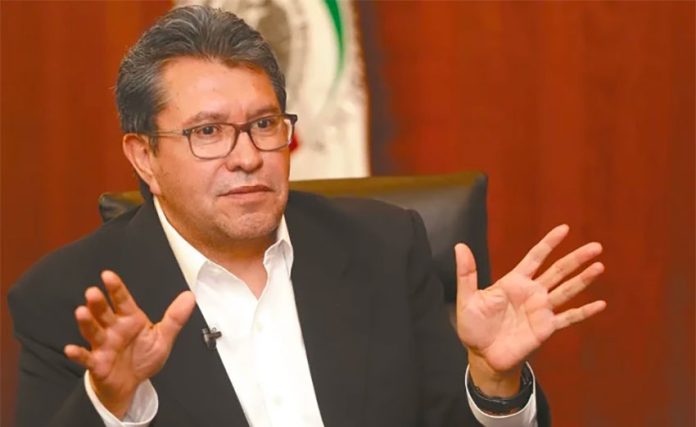Mexico’s ruling party abruptly postponed a plan to fuse the telecoms and energy regulators and the competition authority after an outpouring of criticism.
Ricardo Monreal, a senior senator in the ruling Morena party who made public the initiative last week, announced on social media on Sunday that he was putting it on ice to allow for discussion.
The government had said that the proposal to create a National Markets and Competition Institute for Wellbeing, or Inmecob, would save 500 million pesos (US $22 million).
President López Obrador, who makes no secret of his contempt for neoliberal technocrats, whom he blames for perpetuating poverty and social divisions, threw his weight behind the initiative, saying: “If this helps reduce spending … I’m in favour, because there were many excesses in the creation of agencies, many were unnecessary and almost all of them were very costly.”
But critics said the proposal was less about austerity than about centralizing power. They pointed to the fact that the president would be allowed to appoint officials from a list of names suggested by the Senate, skipping the rigorous independent selection procedure for the telecoms regulator and competition watchdog. The energy regulator was already widely considered to be under government control.
“This is very dangerous. The justification that this will save money and be more efficient is not credible,” said Vanessa Rubio, a former deputy finance minister and now senator for the opposition Institutional Revolutionary Party (PRI). “I think this shows what Morena thinks about checks and balances.”
Monreal countered: “The intention is not to create a superpower or to give way to authoritarianism or to concentrate the functions of these institutions within government, still less to eliminate their autonomy,” he said.
But in order to enable full discussion of the proposal, he said he had postponed presentation of the initiative in Congress.
The initiative comes after the government sought last month to impose new rules for the power sector to give priority to the state utility at the expense of private generators, especially renewables. López Obrador wants a strong state energy sector and believes private companies have enjoyed unacceptable privileges and should be put in their place.
The electricity offensive, imposed by the energy regulator and grid operator Cenace, has been suspended until a welter of court injunctions are resolved — which could take months. More injunctions against tariff rises are expected soon.
“I wouldn’t mind if it was really an issue of austerity but I do if it implies removing all the autonomy and teeth of these institutions, which took us decades to build,” said Arie Ellstein, a political consultant.
López Obrador has also floated the idea of a revamp of the country’s private pension system. Experts agree that many Mexicans will lack sufficient contributions to be able to retire comfortably. “If we do nothing, those who retire won’t even receive the minimum wage, they’ll get half of what they should, at the very least,” the president said.
He has yet to spell out his plans but said he aimed “to correct the error of these irresponsible technocrats, who thought they were scientists, who got us into all sorts of trouble.”
Amid the Covid-19 crisis, Morena has also proposed allowing people to tap retirement funds early. Given the prospect of severe economic contraction and falling tax revenues, “they could be tempted to do something like Cristina Kirchner did with pension funds,” said one economist who asked not to be named, referring to Argentina’s 2008 nationalization.
López Obrador slammed a report in El Universal newspaper that suggested he was planning to take over the railway system, saying the report was intended “to sow fear, to create uncertainty, to continue with this refrain that we are communists, that we are acting like Venezuela … it’s completely false.”
The Inmecob initiative would face a tough congressional ride. Since it would represent a constitutional reform, the government would need the support of two-thirds of both chambers, which López Obrador does not have. But the president prides himself on his stubbornness.
“My fear would be that Morena will try to co-opt the PRI in the Senate to pass this,” said Alejandro Schtulmann, head of Empra, a consultancy.
However, even some figures close to the government urged caution.
“Autonomous competition and regulatory organs take on very powerful market players,” tweeted Gerardo Esquivel, appointed by López Obrador to the board of the central bank. “That is why we should think about how to strengthen them so they can do their job better, not weaken them or undermine their authority.”
© 2020 The Financial Times Ltd. All rights reserved. Please do not copy and paste FT articles and redistribute by email or post to the web.
